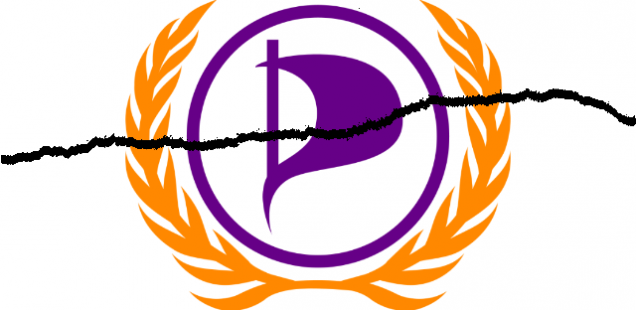PPSE Votes to Leave Pirate Parties International (PPI) | PirateTimes

PPSE Votes to Leave Pirate Parties International (PPI)
The Pirate Party of Sweden (PPSE) has become the latest national party to leave Pirate Parties International (PPI), following a vote taken at the currently ongoing PPSE General Assembly.
The Assembly approved the Board’s proposed motion to end PPSE’s observer membership by 62 votes to 8 against, with 13 blank votes. In its motion the Board stated that “[d]uring our two years as observers, we have not noticed many improvements in the organization. Indeed, it has been worse on many levels and it is important to highlight that we are not satisfied with the organization.”
This sentiment was echoed by many participants in the debate. “I have lost all confidence that the PPI can be mended – they have had many chances and failed. It is time for us to leave.” “PPI has not achieved the change we wanted when we went in as observers in the organization. Today there are more internal problems than ever…”
The PPSE stresses that its decision to end its observer membership will not end its association with PPI altogether. “[This] does not mean that we need to stop cooperating with PPI or its members, but it clearly marks that we expect more of the organization.” The Board goes on to re-affirm that the PPSE still believes in and wants to be a part of the international pirate movement and points to a new organization, with a focus on collaboration, initiated by the Pirate Party of Australia (PPAU) – a shared resource portal for all Pirate Parties at http://pirateint.org.
PPI was formed in 2010 to serve as a worldwide organisation for Pirate Parties. PPI advocates on the international level for the promotion of the goals its members share, such as protection of human rights and fundamental freedoms in the digital age, reform of copyright, privacy, transparency and free access to information. However, several member parties began to express reservations about the organization, particularly in relation to financial issues, PPI’s goals and ways of working, the acceptability and credibility of its statutes, and its internal culture of ‘harshness’ and ‘personal attacks’.
The Pirate Party UK (PPUK) worked actively with PPI from 2013 to 2014 in an attempt to find solutions to these problems, but concluded in a report it shared publicly at the PPI General Assembly in 2014 that while “the UK wishes to see Pirate Parties International become an effective coordination organisation for the Pirate movement and to enable national parties to have a voice within transnational and international organisations… [we] are as far away from that now as we were at the last GA.”
PPAU terminated its membership of PPI in February this year, explaining that it “no longer believes that there is any potential for reform left in PPI, and we have spent all of the energy we are willing to in pursuit of that end.” The PPI board made a response to their withdrawal.
PPUK also terminated its membership in February, concluding that “Over the years PPI has become less and less reflective of what we believe in as a party – as an organisation PPI hasn’t been as transparent as we’d like, or as democratic. It really is about the organisation. Not the people, not the movement, and certainly not the ideas. We have a job to do and for now, at least, PPI is getting in the way.”
The Pirate Party of Belgium (PPBE) followed in March, suspending its membership and indicating that “As there is a decentralised (non-authoritative) alternative in the works at Pirate International, which matches our own way of working much more, we felt it was better to focus our energy on those positive initiatives.” However, their General Assembly later decided to reject the suggestion from their board since the members still believed there were reasons to stay and reform PPI from the inside. “Belgian Pirates have to take their responsibilities about PPI and decide what to do next. Staying members without caring is not an option.”
In March the Pirate Party of Iceland (PPIS) overwhelmingly voted to leave Pirate Parties International. Arnaldur Sigurðarson, member of the Pirate executive council, told the Pirate Times “PPI has been pretty much useless when it comes to its objectives which should be to encourage international cooperation between Pirate Parties.”
At the time of writing, PPI still has 41 full members. However, the growing mutiny must give it cause for concern. Whether or not it can reform itself sufficiently to stem the flow of departing member Parties is a moot point, and one which will no doubt be subject to much discussion within those Parties over the coming weeks and months.

About Andrew McCallum
Andrew McCallum lives and works in Southern Scotland. By day he runs a community-led social enterprise company in a small area of multiple deprivation on the southside of Edinburgh, providing a range of care and support services to disadvantaged people, and by night he scribbles poetry while consuming vast quantities of caffeine and nicotine. He is a member of Pirate Party UK and a bit of an anarchist.
All content is CC-BY if not mentioned otherwise. Please link back to us if using content.
-
- Pingback: Flattr and Bitcoin Appreciation During May, June and July 2015 (50.89E) | PirateTimes()













Recent Comments